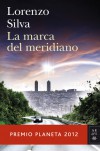Six Little Secrets
 I received a copy of this book via NetGalley.
I received a copy of this book via NetGalley.I debated whether to give this book two or three stars. In the end, I chose two because of the things I disliked about it. The first half was very intriguing. However, the last quarter or so was predictable and a disappointment. Because of the lack of pages, it is very clear that only some people can be involved in the plot. There is simply no time to introduce a whole new character and make the action plausible. It became very obvious who was part of the plan and that a certain character was another target. The character development didn't suffer so much because we can all imagine what kind of people highschoolers are. As readers who have been through high school, we can fill in the blanks.
It starts fairly strong, with the reader not knowing how on Earth could all these kids be linked to each other and not know it. Not just because it seems rather unlikely that all of them would have something in common, but also because they themselves cannot figure it out. This mystery was the best part, together with how the culprit could have managed to get all the tasks ready. The problem is that once you start thinking about it, it becomes obvious that a member of a certain group had to have been involved somehow. There is no other realistic explanation and this is where the greatness of the book disappears.
Then, there are a few things that I actually disliked instead of just not liking it. First of all, and I may sound insensitive, I didn't think that most of them were guilty of much. It reminded me a bit of 13 Reasons Why. In a way, they all played a part in something, but most of them couldn't really be blamed for much or even anything. For example, the sin of one of the characters is not lending money to someone to take the bus. Is this person guilty of whatever happened to that other person because they weren't able to take the bus home? It wouldn't be a problem if the mastermind behind the tasks were considered crazy and a criminal. But they aren't. There's also the fact that some of the tasks were way too much if the mastermind wanted to turn them into better people. One of the tasks involves forcing one of the girls to take a naked picture of herself and to post it online. Again, it wouldn't be a problem if the mastermind was considered the bad guy in the end. It makes me wonder if the author thought about the consequences of such pictures being distributed online.
In general, even though the premise is great and the beginning is very mysterious, I wouldn't recommend this book to anyone.


















